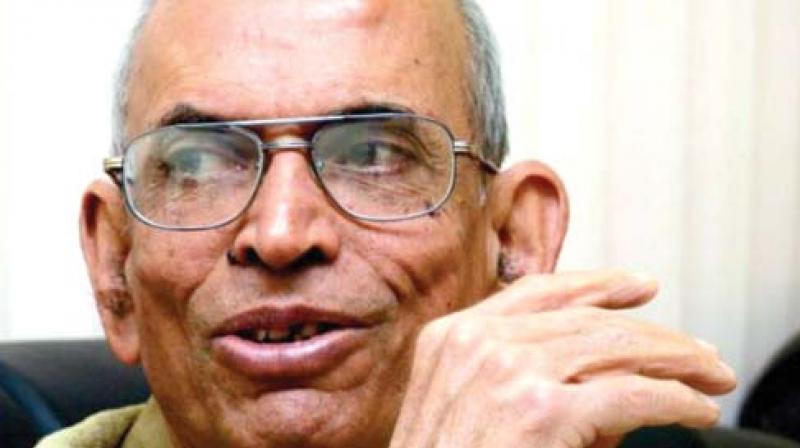Experts insist on ‘sustainable development, conservation’ theory
Strictly enforce environmental laws such as air and water acts to control population.

Thiruvananthapuram: In view of the huge devastation caused by floods and landslides in various parts of the state, experts have suggested that it is time to replace the pattern of 'Develop recklessly - conserve thoughtlessly' with one of ''Develop sustainably - conserve thoughtfully."
A number of quarries are being permitted to operate in Kerala Western Ghats without proper permits and despite staunch opposition from the Gram Sabhas since these adversely affected land and water resources and hurt people's livelihoods and health.
The distance between quarries and areas inhabited by people does not comply with the existing laws.
Experts say there is a need for the ruling front to show the political will to strictly implement environment laws. However, there have been recurring instances of the authorities' concerned turning a blind eye to grave violation of environment laws and in some cases are in compliance with violators.
It is time for the government to seriously consider the suggestion made by Western Ghats Ecology Expert Panel (WGEEP) to develop a model of conservation and development which is compatible with each other. The model proposed by Madhav Gadgil who headed the WGEEP, would ensure fine-tuning of development-conservation practices with the full involvement of local communities.
The noted environmentalist believes that people have not been empowered to participate either in development or in nature conservation. Instead the state has witnessed imposition of programmes of destructive development which are unfriendly to both people and nature.
As Madhav Gadgil put it;``What we see around the Western Ghats and rest of country may be termed 'Development by Exclusion' hand in hand with 'Conservation by Exclusion'. Despite the 73rd and 74th Amendments to the Constitution which vested local bodies with powers to take decisions on local level development, such decisions are being thrust from above.
Experts say it is not right to fully depend on government agencies and officials for the management of ecologically sensitive zones. Detailed inputs should be taken from the local population,
local bodies taking into consideration the local ecological and social context. There is a need to create a broad set of strict guidelines for various sectors based on extensive consultation with experts, officials, civil society groups and the general public.
Mr Gadgil had pointed that it was the local people who had a genuine stake in the local environment and ecology. Often it is the outside interests that are responsible for destroying nature and local people's health and livelihoods driven by profit motive.

